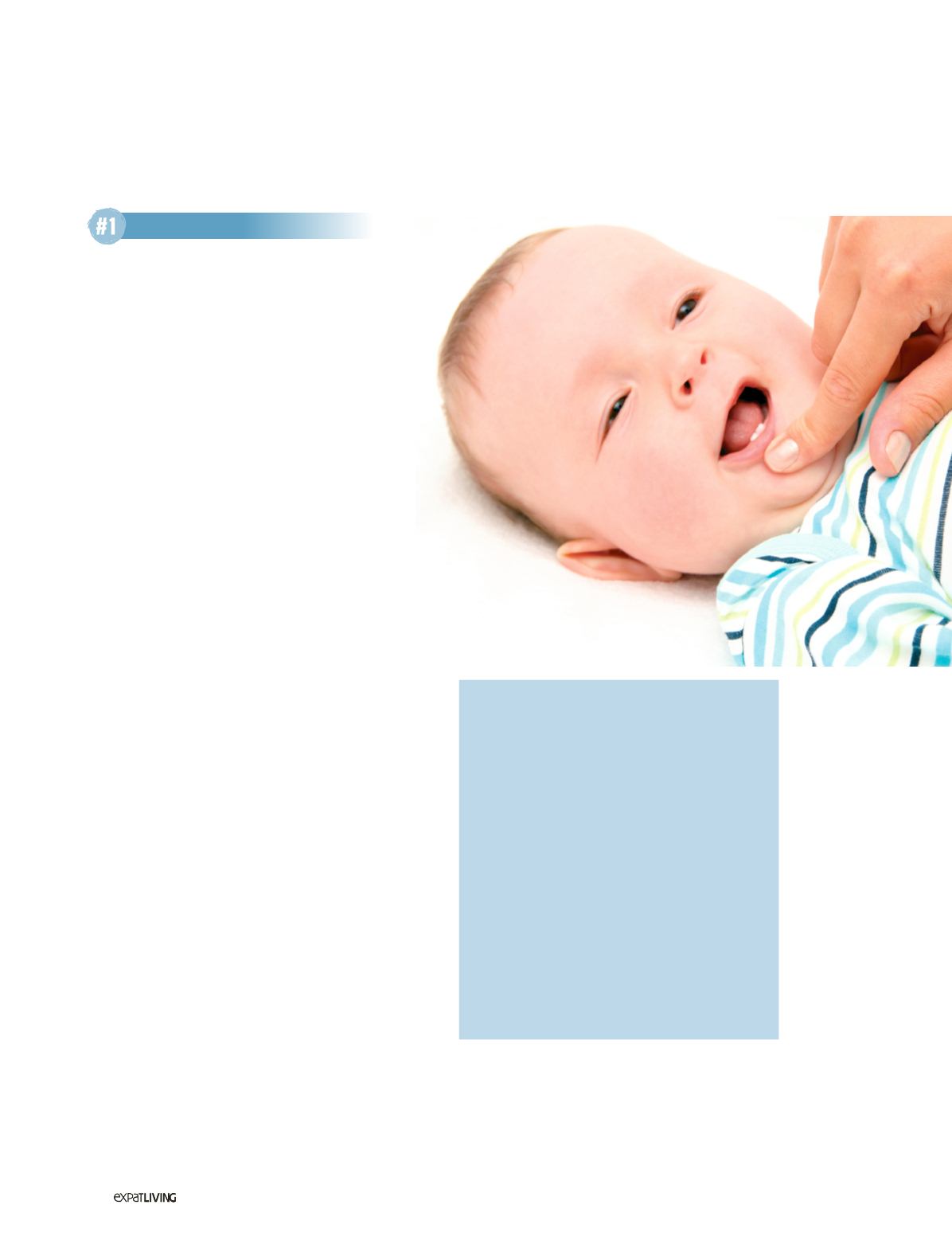

HEALTH&FITNESS
298
July14
Caring for your baby’s teeth is essential, says DR ONG
YEAN SZE, and establishing correct dental habits in young
children will stand them in good stead for the rest of their
life. “Most of your child’s dental care can simply be carried
out at home,” she adds, “along with regular six-monthly
checkups by your dentist.”
While it’s true that some are more susceptible than
others to dental decay, there’s a lot you can do to prevent
it. A combination of several factors is required for dental
decay to begin, such as:
•
bacteria that are conducive to decay, and a diet that
encourages the growth of such bacteria;
•
susceptible tooth structure and surfaces;
•
availability of fluoride, and so on.
Sugar and acid
Dr Ong’s key advice is to strictly limit not only the amount
of sugary and acidic foods your child eat and drink, but
the frequency with which he or she consumes them. Fruit
juice and soft drinks need not be completely avoided, but
should be consumed during mealtimes to reduce the
exposure time between acid and sugar and teeth. Sweets
and ice cream should be considered party treats.
Snacks between meals should be savoury or sugar-
free. Remember that even sparkling water and fizzy diet
drinks that don’t contain sugar have an acidic reaction:
the carbonation that makes the drink bubbly will erode
tooth enamel.
Brushing and flossing
Thorough pre-bedtime tooth-brushing is essential,
so parents need to help with this until children have
developed the necessary dexterity; Dr Ong suggests that
supervision should continue until the age of seven or eight.
Plaque-disclosing dyes are a fun way to show up areas
that have been missed.
Most young children are not good at flossing, so you’ll
need to do this between all the baby teeth that make
contact with one another: between the baby molars is a
primary site for decay. But if your child has natural spacing,
simple brushing is enough.
Fissure sealant
Tooth fissures – the deep pits and grooves on the chewing
surfaces of the back teeth – are so narrow that even
toothbrush bristles cannot clean them, so they tend to
attract bacteria. To prevent the onset of decay, your dentist
can apply a fissure sealant: a special material, white in
colour, that bonds directly to the tooth enamel and forms
a protective coating over the tooth. This is most effective
when it’s done as soon as practicable after the eruption
of the tooth.
Nikkost | Dreamstime.com
How does fluoride work?
•
First, it works on the yet-to-erupt adult teeth
that start to form at birth, helping them to
grow strong and healthy. Second, it works on
the exposed teeth that have already erupted.
•
Singapore tap water is fluoridated, and
toothpastes are another good source of
fluoride for children.
•
For those who are too young to expectorate,
but who already show signs of early tooth
decay, a small amount of fluoridated
toothpaste (the size of a rice grain) smeared
over affected surfaces can prevent the decay
from going further.
•
Children who are very susceptible to decay
may benefit from additional applications of
topical fluoride by the dentist.
Get off to a Good Start
Dr Ong Yean Sze, Specialist in Paediatric Dentistry
Kids Dental World
6684 3113 or 9769 6522 |
smile@kidsdentalworld.com.sg


















